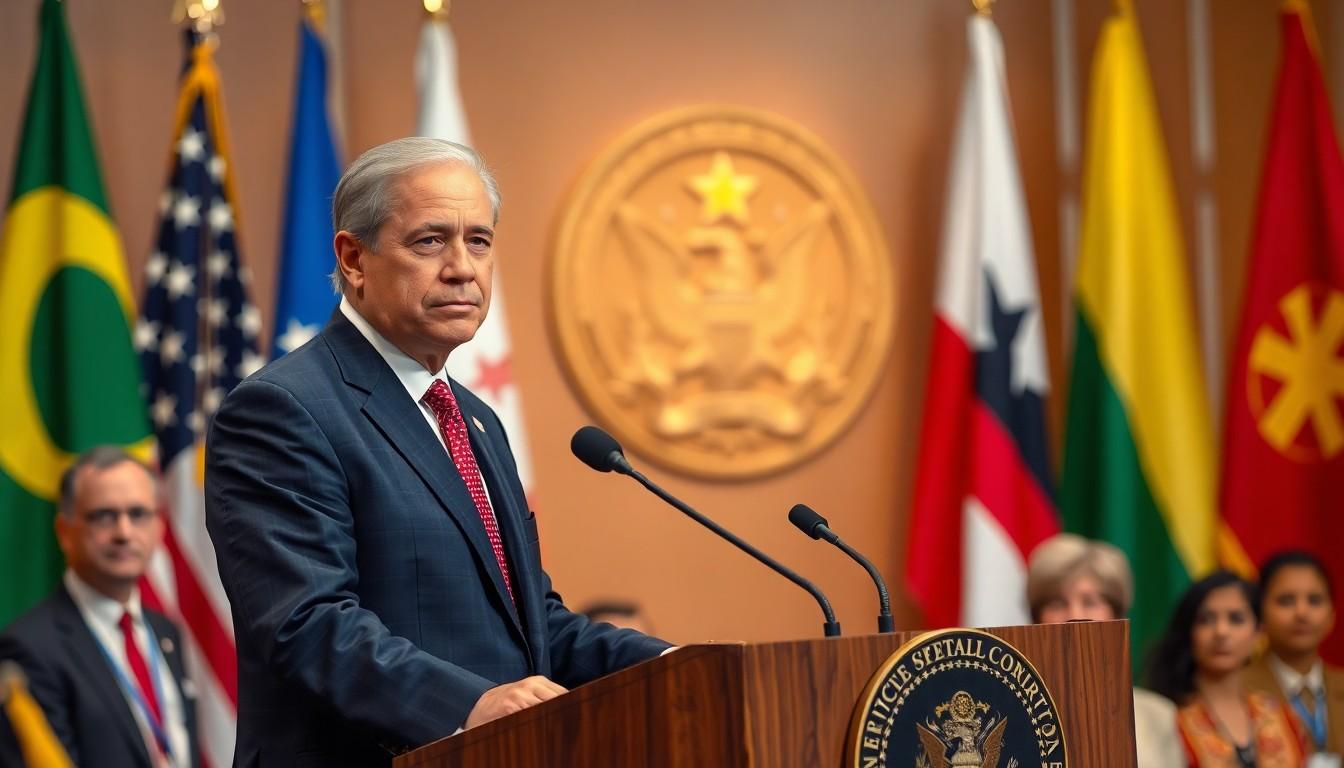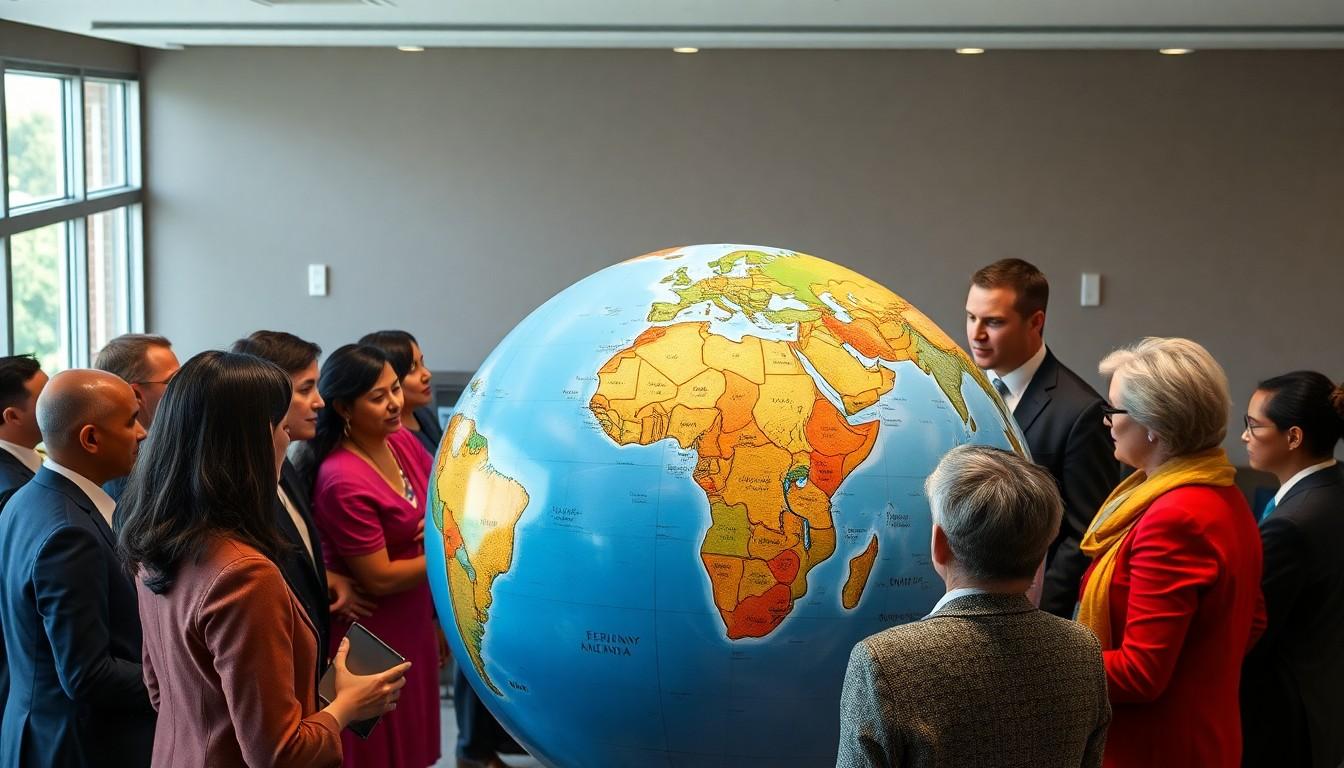The Best Fluffy Pancakes recipe you will fall in love with. Full of tips and tricks to help you make the best pancakes.

Moral Diplomacy President: How Ethical Leadership Shapes Global Politics Today
In the realm of international relations, moral diplomacy stands out like a well-tailored suit at a beach party. It’s all about promoting values and principles over mere power plays. When discussing the “moral diplomacy president,” one can’t help but think of leaders who’ve tried to balance the scales of justice while navigating the murky waters of global politics. It’s a tightrope walk where one wrong step could send them tumbling into a pit of political chaos.
This approach champions human rights and ethical governance, but let’s be honest; it’s not always a walk in the park. From lofty speeches to tough decisions, these presidents aim to win hearts and minds while keeping their own countries secure. So, what does it really mean to lead with a moral compass? Buckle up, as we dive into the intriguing world of moral diplomacy and the presidents who’ve dared to embrace it.
Moral Diplomacy President
Moral diplomacy focuses on promoting ethical values in international relations. This approach contrasts with traditional diplomacy, which often prioritizes power and national interests. Presidents who adopt moral diplomacy aim to influence global politics through principles like democracy and justice.
The term gained prominence during Woodrow Wilson’s presidency. It emphasizes the United States’ responsibility to advocate for human rights and self-determination. Prominent examples include Wilson’s efforts to support democratic movements in Latin America and Europe.
Implementing moral diplomacy poses challenges. Balancing ethical commitments with national security can create tensions. Moreover, leaders encounter difficulties while advocating for international standards, particularly in nations with authoritarian regimes.
Influential moral diplomacy presidents often face scrutiny. Critics argue that the lofty ideals may lead to inconsistent actions on the global stage. Advocates believe this strategy fosters long-term relationships based on trust and mutual respect.
Cases of moral diplomacy can be seen in various international engagements. Presidents like Franklin D. Roosevelt and Barack Obama also sought to implement this philosophy in their foreign policies. These leaders emphasized cooperation, multilateralism, and global partnerships.
In today’s context, moral diplomacy remains relevant. The growing focus on climate change, social justice, and human rights underscores its importance. Leaders today navigate a complex landscape while promoting their moral agendas.
Key Characteristics Of Moral Diplomacy

Moral diplomacy prioritizes ethical standards in international relations. This approach reflects a commitment to justice and human rights while engaging with global issues.
Ethical Guidelines
Ethical guidelines serve as the foundation of moral diplomacy. These guidelines promote democracy, human rights, and social justice. They influence diplomatic relationships and policymaking decisions. Leaders who adhere to these principles take actions aligned with ethical values. For example, supporting democratic movements reflects a commitment to global justice. Consistency in applying ethical standards allows for credibility in international arenas. In this context, nations are encouraged to hold themselves accountable for their actions, ensuring that morality remains central to their diplomatic strategies.
National Interest
National interest remains a crucial factor in moral diplomacy. Upholding ethical values often aligns with a country’s long-term goals. While leaders embrace moral principles, they must also protect national security. Balancing these priorities requires careful consideration and strategic planning. For instance, promoting human rights can enhance a country’s reputation, fostering stronger alliances. Nations may leverage moral diplomacy to achieve foreign policy objectives without compromising foundational values. Ultimately, the intersection of national interest and ethical guidelines shapes the effectiveness of moral diplomacy on the world stage.
Prominent Moral Diplomacy Presidents
Moral diplomacy has shaped the actions of several U.S. presidents throughout history, with notable examples demonstrating its influence.
Woodrow Wilson
Woodrow Wilson is often regarded as the pioneer of moral diplomacy. During his presidency from 1913 to 1921, he emphasized the importance of ethical governance and self-determination for nations. His administration sought to promote democracy, especially in Latin America, where he intervened in countries like Mexico and Haiti. Wilson’s belief in the moral obligation to support democratic movements exemplified his commitment to ethical values in foreign policy. He famously declared, “The world must be made safe for democracy,” positioning moral considerations at the forefront of American diplomacy.
Franklin D. Roosevelt
Franklin D. Roosevelt further advanced the concept of moral diplomacy during his presidency from 1933 to 1945. He emphasized the importance of cooperation among nations in the wake of global economic turmoil and the rise of fascism. Roosevelt implemented the Good Neighbor Policy, which sought to improve relations with Latin American countries through mutual respect and non-intervention. His administration focused on collective security and multilateralism, advocating for collaboration through organizations like the United Nations. FDR aimed to balance national interests with ethical commitments, showcasing moral diplomacy’s relevance in addressing global challenges.
Impact Of Moral Diplomacy
Moral diplomacy significantly influences global politics, promoting ethical governance and fostering cooperation among nations. The emphasis on justice and human rights shapes international relationships and enhances reputations.
Positive Outcomes
Strengthening international partnerships often results from moral diplomacy. Leaders who advocate for democracy encourage greater collaboration and trust among countries. Promoting human rights can lead to improved social conditions for citizens. A commitment to ethical principles fosters goodwill, making it easier for nations to address shared challenges, such as climate change or pandemics. Enhanced credibility on the world stage arises when leaders consistently align actions with moral commitments, benefiting their countries overall.
Criticisms And Challenges
Critics argue that moral diplomacy can lead to hypocrisy when actions fail to align with stated values. Navigating national interests while promoting ethical standards poses significant challenges for leaders. Balancing these priorities often requires complex decision-making, sometimes resulting in inconsistent policies. Countries may face scrutiny for prioritizing ethical commitments in certain regions while overlooking similar issues elsewhere. The potential for negative backlash exists if nations appear to prioritize self-interest over genuine advocacy for human rights.
Moral diplomacy continues to shape the landscape of international relations as leaders strive to align ethical values with national interests. By prioritizing democracy and human rights, these presidents foster cooperation and build stronger alliances. However, the challenges of maintaining consistency in actions and policies remain significant. As global issues like climate change and social justice take center stage, the principles of moral diplomacy will be crucial in guiding future leaders. Balancing ethical commitments with the realities of national security will define the effectiveness of this approach in the years to come.
